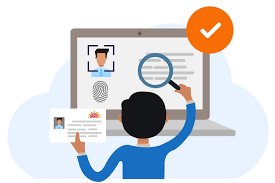In today’s increasingly digital society, identity verification has become an essential process to safeguard against fraud. It involves confirming the legitimacy of the individual’s identity before granting access to various services or systems. Here’s a complete overview of the essential information you need to be aware of regarding identity verification.
What is Identity Verification?
identity verificaiton involves confirming that an individual is who they claim to be. It is accomplished through a variety of methods that may include biometric information, documents or any other personal data. The goal is to ensure that the individual accessing an online or computer system is authorized to do so.
Methods of Identity Verification
Checking for documents: This standard method is based on checking government issued documents like passports, driver’s licenses, and ID cards. Customers may require photographs as well as physical versions of the documents. The verification process can be manual or automated by Optical Character Recognition (OCR) technology.
Biometric Verification: This involves using biometric traits that are unique to confirm identity. Biometric techniques used for verification include finger scanning, facial recognition, voice recognition and iris scanning. Biometric data is often thought to be more secure since these traits are difficult to duplicate.
Knowledge-Based Verification: This technique relies on information that the user already knows, such as answers to security questions or personal information like Social Security numbers or account numbers. While it is widely used, it can be less secure if the information is compromised.
Two-Factor authentication (2FA) It adds an extra layer of security, as it requires two kinds of verification. It typically requires a piece of information that the user already knows (like a password) as well as something they possess (such as a smartphone that has an verification certificate).
Why is Identity Verification Important?
Identity verification plays a critical role in protecting personal and financial information. It assists in preventing identity crime, theft and unauthorised access to sensitive information. In ensuring that people are correctly identified, organizations can mitigate risks and comply with laws like the General Data Protection Regulation (GDPR) and the Know Your Customer (KYC) requirements.
Challenges and Considerations
However, despite its importance identity verification isn’t without its challenges. It can be a hassle for users, especially when multiple verification steps are required. Privacy concerns also occur as more personal data is stored and collected. Ensuring that the data is safely handled and is used in a responsible manner is essential.
Future Trends
Future of identity verification is leaning towards more sophisticated technologies, such as blockchain for decentralized identity management and AI to ensure more accurate biometric verification. These innovations aim to enhance security, decrease fraud, and simplify verification. verification process.
In conclusion, identity verification is a vital element of modern security practices. By understanding the various methods and their importance, individuals and organizations can better protect themselves and navigate the world of technology with greater confidence.

